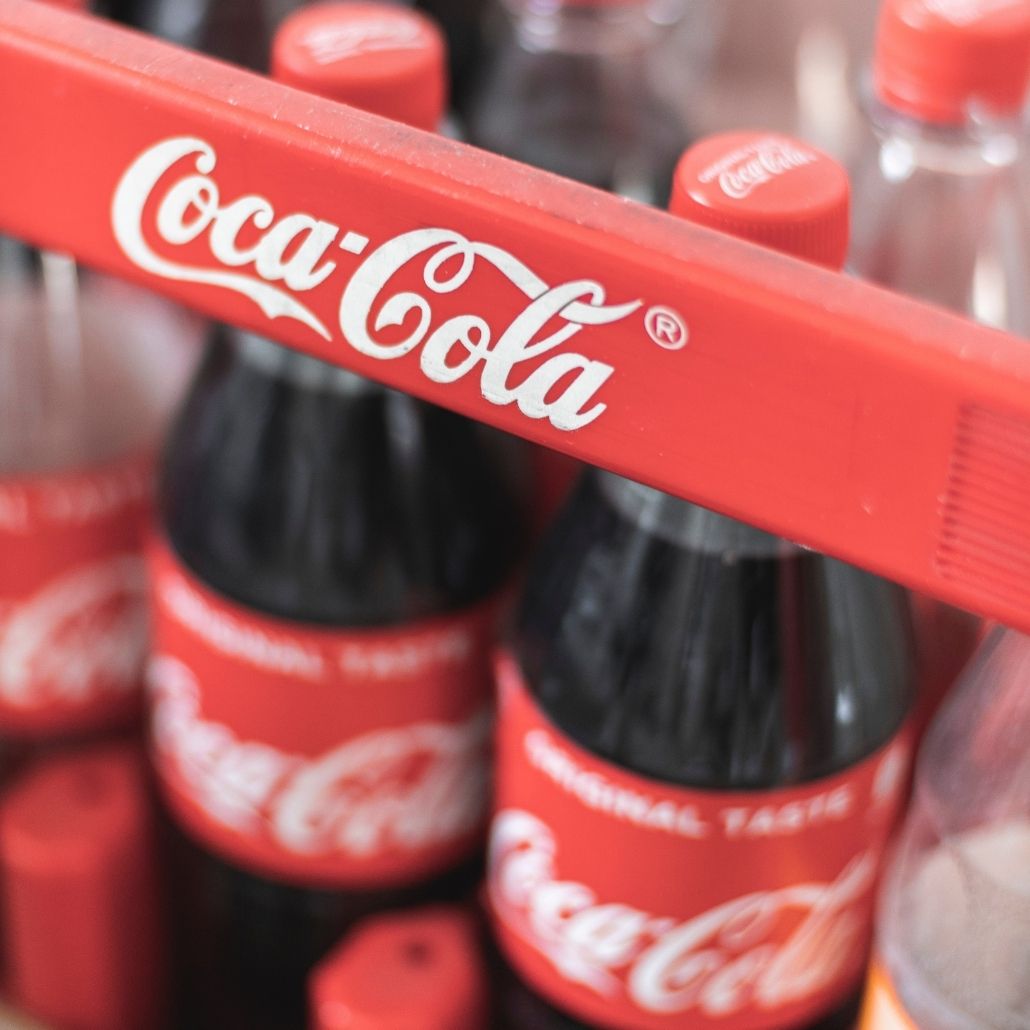
Image Credit: Unsplash
Here Is How Coca-Cola Is Contributing To The Plastic Problem Around The World
Writer: Abbas Rizvi
He is a voracious reader who likes to read about the world. Research and Fact Checking are his area of work. He likes to think before speaking.
Others/World, 26 Oct 2021 4:21 PM GMT
Editor : Madhusree Goswami |
A mountain girl trying to make it big in the city. She loves to travel and explore and hence keen on doing on-ground stories. Giving the crux of the matter through her editing skills is her way to pay back the journalism its due credit.
Creatives : Abbas Rizvi
He is a voracious reader who likes to read about the world. Research and Fact Checking are his area of work. He likes to think before speaking.
The soft drink industry produces 470 billion plastic bottles every year, designed to be used just once. Coca-Cola makes a quarter of them; nearly half of the coke bottles are dumped, burned or littered.
The soft drink industry produces 470 billion plastic bottles every year, designed to be used just once. Coca Cola makes a quarter of them; nearly half of the coke bottles are dumped, burned or littered.
Coca Cola Of 1950s
In the 1950s Coca Cola was using glass bottles, and customers used to get 2 cents back when they returned the bottle. Coca Cola used to collect bottles and reuse them. A decent amount was spent by the company in the whole process of collecting the empty used bottle, bringing them back and washing them and filling them once again etc. When Coca Cola started using single-use plastic bottles, they realised they could reduce the management cost to the municipalities. In the 1970s, the Coke advertisements promoted the benefits of plastic.
Single-use plastic bottles save a lot of production costs. Coca Cola owns hundreds of brands like Fanta, Sprite and 55 brands of bottled water. They use 3,500 plastic bottles a secon which is around 2,00,000 bottles a minute. Coca Cola products are sold in almost every country, generating an annual profit of $20 billion every year.
Lake Victoria Of Uganda
Uganda, a country in East Africa, has the biggest and the freshest water body, Lake Victoria. It is one of the African Great lakes named after Queen Victoria is on the path of destruction because of plastic pollution. Uganda, which was known as the power of Africa, is losing its identity because they are losing lake Victoria. Only 6 per cent of plastic waste is collected for recycling in Uganda. More than three-quarters of everything which Coca Cola sells in Uganda is in throwaway plastic bottles. According to the Panorama analysis of Coca Cola, 156 billion plastic bottles since 2018 have been burnt, littered or buried in landfill sites.
In 2018, Coca Cola launched a campaign, 'World Without Waste', an ambitious environmental program making packaging 100 per cent recyclable by 2025, and to ensure 50 per cent of packaging is made from recycled materials by 2030.
Apia Of Samoa
Apia Samoa, also known as Western Samoa, is a Polynesian island country consisting of two main islands (Savai'i and Upolu). The capital city is Apia. In February, Coca Cola closed its glass bottling line for fizzy drinks in Samoa and began bringing in thousands of plastic bottles. Within days, the littering of the bottles started in Samoa, and there is no recycling plant in Samoa as well.
"The population of Southwest Samoa is only 2,00,000 as we do not generate enough waste because no recycling facility exists here. That facility usually exists in developed countries or countries with more people. Our charity received a donation of $40,000 from coke, but it is not enough to export one waste container off the Island. The profit is significantly less because the freight is costly, and the charity has to cover other costs like employing girls to wash and process the plastic," says Marina, who runs a charity that collects recyclable materials in Samoa for exports, as reported by the BBC.
The plastic problem is not just with coke. The entire soft drink sector is facing a recycling problem. Competitors like Pepsi and bottled water producer Dannon don't publish their collection and recycling rates, whereas Cokes does. The Coke annual report shows that they sold 112 billion throwaway plastic bottles last year, 14 for every person on the planet, but only 56 per cent made it to the recycling plant, which means around 49 billion plastic bottles weren't recycled.
"The problem is we don't have sufficient collection not just in developing countries but also in America and Asia. We need to collect the bottles before we even think about recycling," says Clarrisa Morawski, recycling expert and CEO of Reloop.
Rates of collecting PET bottles are hugely different across the world; for example, in European Union, Germany collects 98 per cent of bottles, Finland 94 per cent, Croatia 89 per cent, Denmark 87 per cent, and the United Kingdom collects just 57 per cent. Poorer countries have far more worst rates in the collection.
Dumaguete Of Philippines
Dumaguete is a city on Negros Island in the Southern Philippines, and is Coca Cola's oldest established market in Asia. Nearly half all the soft drinks bottles and bottled water salt are made with coke. The Philippines is struggling with plastic pollution created by single-use plastic. According to Coca Cola, just one in five PET bottles sold in Philippines in 2019 were collected for recycling. Half of the coke's bottles are refillable glass bottles, and plastic bottles are getting smaller. The latest edition is just 200 milliliters.
" All these tiny bottles of Coca Cola is the craziest creation by them. This Filipino product has been bombarded with advertisements saying that the most fabulous drink ever is here. Coca-cola is using plastic bottles that they claim as recyclable but is not being recycled. It is because there is no proper system to collect garbage properly. We don't have enough workforce to collect all the waste," said Merci Ferrer of Zero Waste Cities.
Kampala Is Burning Garbage
In the capital of Uganda, Kampala, the local authorities collect only half of the city's rubbish. There is a lot of plastic waste in the city. In the areas where people don't have a proper system to collect garbage, they burn the garbage, which releases toxic gases and causes respiratory problems. Most of the tissues plastic burning is affecting are the lungs and the brain. The rates of lung cancer are rapidly increasing in Uganda. Waste pickers are not fairly paid in the country. Coca Cola says they are working to help waste pickers who are often some of the most vulnerable people and have developed tools to help understand their economic conditions.
Coca Cola Incomplete Pledges
Since 1990 Coca Cola has made many promises but has failed on almost all counts. In 1991 coke introduced bottles made from 25 per cent recycled plastic. Just three years later, they phased them out. After which coke promised that every bottle on sale in America would contain 10 per cent recycled plastic by 2005, but they achieved just 4 per cent. One more pledge they made was that all bottles will have 25 per cent recycled plastic by 2015, but they again failed and reached just 7 per cent.
Since the project World Without Waste was launched, coke has increased the amount of recycled plastic in their bottles from 8.6 per cent to just 11.5%. If Coca-Cola works with this rate, it will reach only 32 per cent by 2030 instead of 50 per cebt, which they promised. The issue is recovery and recycling of plastic costs more money than buying virgin plastic. Nearly 90 per cent of the plastic in coke's bottles is virgin plastic, which also impacts their carbon emissions. Recycled plastic produces 80 per cent less carbon dioxide. Currently, Coke's total plastics production emits six million tons of carbon dioxide a year.
Coca Cola Is Still Struggling
Coca Cola says PET plastic is energy efficient to produce and transport compared to other materials. Coca Cola is confident that they will reach their 50 per cent recycled plastic goal, but for that, it has to improve collections rates. Coke says their refillable plastic bottles can be reused up to 25 times, and in Brazil, they are replacing 200 million throwaway bottles every year. But globally, coke sold 112 billion bottles last year and just 4 billion refillable plastic ones. Refillable bottles require a lot of investment. They need to be collected, and they have to wash them and put them on the market again. Coca Cola is struggling to meet its targets, and the highest amount of bottles littered are still by Coca Cola.
Also Read : Kerala Man Who Nurtured 40,000 Mangrove Plants Wins Environment Award For His Contribution
 All section
All section














